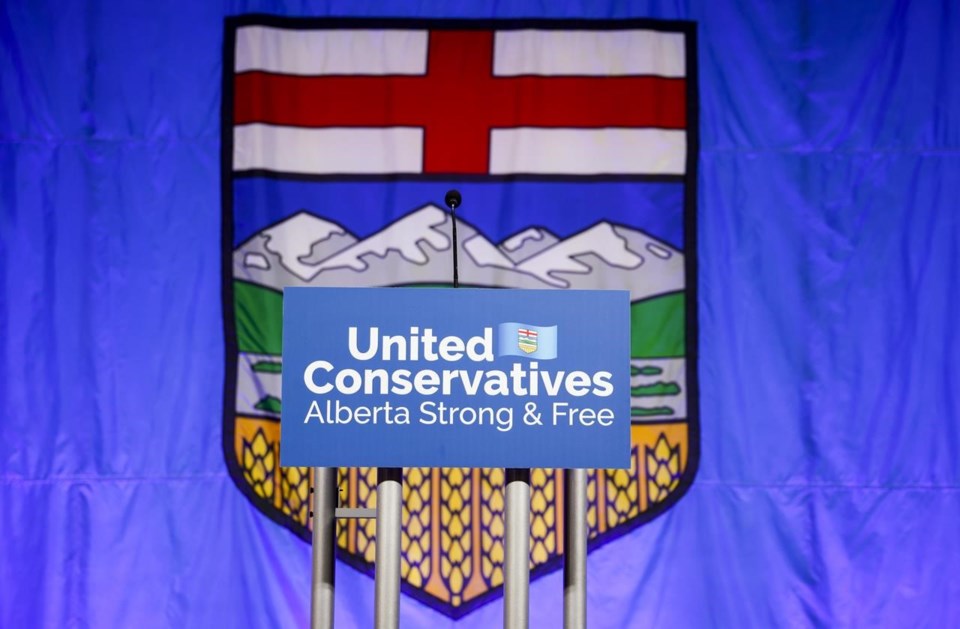EDMONTON — Alberta's United Conservative Party government released a climate plan Wednesday that it hopes will take the province to net-zero carbon emissions by 2050 but offers few details, targets or new measures on how it would get there.Â
Instead, Environment Minister Sonya Savage has promised a package of commissions, committees and studies to determine what Alberta needs to do.Â
"You can't just pick random targets with a random date and say we're going to get there," Savage said. "We have to do the hard work and that's what our plan is going to do."
Alberta faces huge carbon challenges. The latest federal inventory indicates that the province produces about 38 per cent of Canada's greenhouse gas emissions with only 11 per cent of its population.Â
It will be tough for Canada to meet its international climate commitments unless Alberta figures out how to address those challenges.
Wednesday's plan, which the government calls "aspirational," describes past measures the province has taken to reduce its emissions and celebrates successes such as its renewable electricity boom. It is the first time the government has made any kind of commitment to net-zero in any time frame.
But for future successes, it will look to previously touted technologies such as carbon capture and storage, as well as the suggestions of a promised round of consultations and studies.
Alberta will look at lowering the cap on oilsands emissions if the industry can show it's practical, Savage said. The use of more renewable fuels is to be considered. The province is to seek to cut methane emissions by 80 per cent, slightly better than the federal target.
A new committee of Indigenous people and youth is also to be formed and the government said it will consider the climate effect of its land-use decisions.
Alberta has asked for proposals for consultants to go through the provincial economy sector by sector and analyze what's achievable, Savage said.
The plan contains no interim targets for reductions, spending or investment — despite the daunting task of scaling up carbon capture to do more than store the small fraction of Alberta's emissions it currently sequesters. Nor does the plan propose regulation or legislation to move the province toward net-zero.
Savage said there's no point having those until the homework is done.
"The question isn't whether you legislate the targets," she said. "It's about having realistic pathways to get there and providing the supportive policies."
Andrew Leach, a University of Alberta economist who helped the former New Democrat government develop its climate policy, called the document "a plan to make a plan." But he said it shows the governing United Conservatives are softening their former opposition to green measures.
"This is doing the work that they decided four years ago they didn't need to do," he said.
Leach said the plan doesn't need to have targets to be successful if its policies are right. But that doesn't mean more research is needed.Â
"They've been commissioning external studies after external studies after external studies," he said.Â
"There are multiple third-party reports and academic studies. To say that knowledge isn't out there just isn't the case."
Simon Dyer of the clean energy think-tank Pembina Institute said the plan contains few ways to evaluate progress.
"We were expecting a much more rigorous plan that would actually provide specific rules," he said. "The lack of urgency and short-term actions that would confidently result in reductions is a challenge."
Dyer said commitments to study and consult might have been acceptable years ago.
"It's 2023," he said. "We're leaving this very late. Everyone knows this research has been done.
"The more Alberta delays in setting clear rules, the less investments in innovation and decarbonization are actually taking place."
Opposition New Democrat environment critic Marlin Schmidt said the plan lacks credibility.
"By their own admission, this so-called plan is purely aspirational, does not set firm targets, lacks accountability and relies on technology that is yet to be deployed," he said. "Even Minister Sonya Savage admitted her plan isn’t finished."
The New Democrats haven't released their entire climate plan. Previously announced measures include a pledge for a net-zero electricity grid by 2035 and tax credits for investment in clean technologies.
Pathways Alliance, which represents companies behind more than 95 per cent of Canada's oilsands production, welcomed Savage's announcement.Â
“We are particularly pleased with the province’s recognition that a co-ordinated approach with the federal government and industry is needed to compete with the United States, Europe and others for investment in widescale carbon capture, utilization and storage deployment, essential to achieve emissions reduction goals," president Kendall Dilling said in a statement.
Lisa Baiton, president and CEO of the Canadian Association of Petroleum Producers, called the UCP plan "an effort to chart a pragmatic path forward for the province."
"We look forward to building on the foundation Alberta has set on emissions reductions as a partner in creating an environment that encourages investments to lower emissions and grow our energy resource sector,” Baiton said in a statement.
Savage said she recognizes it's getting late in the game for developing a climate policy.
"We're behind. I wish this plan had been out two years ago. We know we have work to do."
This report by The Canadian Press was first published April 19, 2023.
Bob Weber, The Canadian Press




